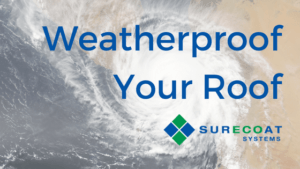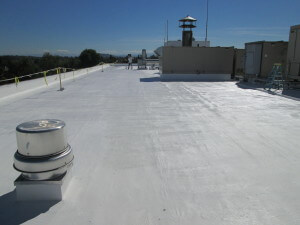
The 2017 hurricane season has already been quite catastrophic – with Harvey, Irma, Jose and now Maria, news and weather sources are saying this is one of the worst years yet by meteorological standards. However, there no clear signs of letting up just yet, with two more months to go.
A recent article in USA Today states that the seven hurricanes that have formed this year double the average to date. And there have been 30 days this year that hurricanes have been spinning in the Atlantic, which is another double in average since 2004. Also, the 2017 hurricane season sets the record for having two Category-4 hurricanes hitting the United States in the same year.
When these impressive yet devastating storms are defined as Category 3 or higher, they are major, and we are all reminded of the destruction these storms can inflict on everything in their path.
Besides loss of life, property damage is the main problem during these hurricanes and coastal storms. High winds, debris and rain not only present damage to the exterior of a property but can lead to interior damage of a building as well. Extra moisture becomes trapped and can lead to mold, which ends up causing further damage, health risks and more expenses. Preparing your roof system and your property is important for minimizing these threats and protecting effects in the long run.
Before the Storm
It goes without saying that you should make sure you are prepared well in advance. Strongly consider having routine maintenance and inspections to verify the performance of the roof system in place. This will allow you to fix any vulnerable areas that might be more susceptible to the wind and rain produced by a storm. Take pictures of your roof system before the storm as well in case you need documentation, and keep this together with your inspection information providing proof that your system was functioning correctly. It would also help to make sure to remove any loose objects that could blow around; secure all exterior units, including HVAC, exhaust or intake fan covers; clear gutters, downspouts and drains; inspect edges and flashings for securement; and cover any exposed skylights.
Don’t forget to review your warranty and insurance policy. It’s vital to know what your warranty does and does not cover in regard to hurricanes and tropical storms. The manufacturer should state that coverage includes materials provided by the manufacturer and the labor provided by the approved roofing contractor, but that is not always the case, so know how to understand and read between the lines.
Then it’s time to batten down the hatches – don’t forget that your safety is most important. Take care of yourself, your family, friends, loved ones and employees until the threat has passed.
Once the storm has passed, it’s time to get back out there and CAREFULLY assess the damage of your property. Look for visible damage, take post-storm photos to compare the damage and contact your insurance company to submit a claim if need be. Next, it’s time to reach out to your approved contractor to further assess the damage more accurately.
To effectively protect your property against the looming threats of hurricane season, get in touch with a SureCoat System waterproofing expert. The SureCoat Roof System liquid single ply has been engineered with the highest-grade raw materials and cross-linked resins to provide increased durability and elasticity, protecting against the toughest ponding water, wind and rain. If you’re short on time or money, then attack your vulnerable areas by doing patches, repairs or a partial roof job that is proven to weather the storm.




